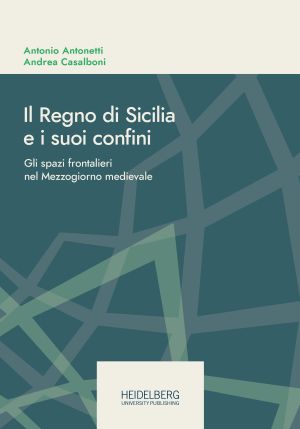Zitationsvorschlag
Lizenz (Kapitel)

Dieses Werk steht unter der Lizenz Creative Commons Namensnennung - Weitergabe unter gleichen Bedingungen 4.0 International.
Identifier (Buch)
Veröffentlicht
La percezione del confine nelle popolazioni rivierasche del Regno (1282–1343)
Abstract The border is an extraordinary observatory of the historical events of peoples and an effective historiographical tool for measuring the degree of internal cohesion of admin istrative, economic, and social systems, the resilience of local populations and responses to recovery stimuli. It represents, in the Angevin imagination, an insurmountable limit linking Calabrian and Sicilian crossborder towns, whose story is analysed, in light of still littleknown surviving documentation, for the period from the outbreak of the War of the Vespers to the death of Robert the Wise (1282–1343). The survey focuses in particular on the perception of the border by those populations who experience firsthand the con tinuous devastation of cities and countryside or, reduced to poverty, are forced to seek their fortune elsewhere. Those who remain, supported by royal favor, are directly involved in the very defence of the border and feel an integral part of the imposing defensive and border administration apparatus of the Kingdom. This involvement is basically psycho logical in nature, countering the echo of hammering Sicilian propaganda and controlling exponents of the aristocracy not aligned with the Anjou. A cumbersome and ineffective border policy, infiltrated by the attempts of the feudal aristocracies to further root their power in the territory by ensuring control of the most important Universitates civium.






